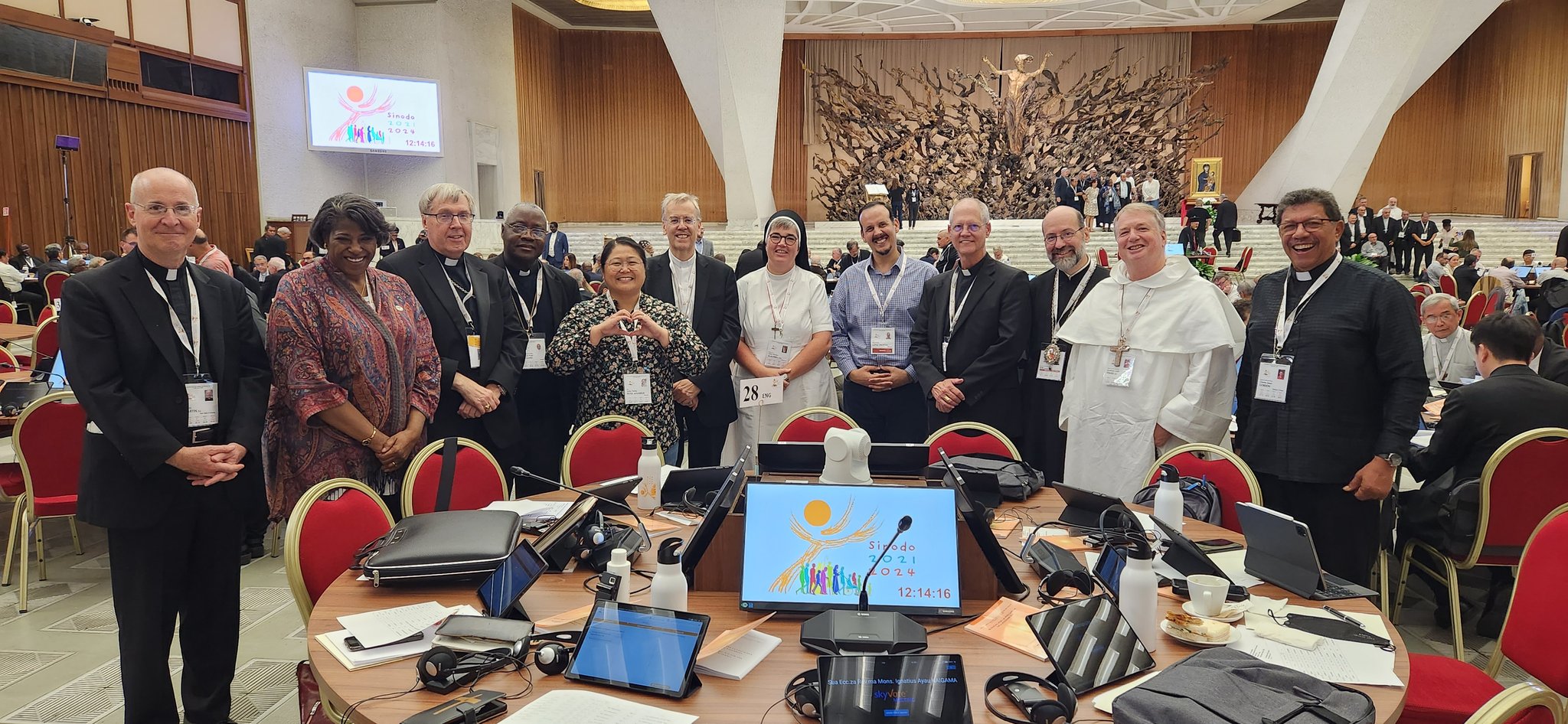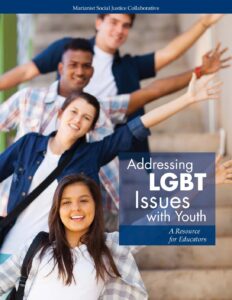A German-language version of this text is available here.
In 2019, German Catholics were surprised by Pope Francis when he addressed a letter to “the pilgrim people of God in Germany.” The pope’s letter not just to the German bishops, but to all the faithful of our local church, was a great gift that motivated us at the beginning of our Synodal Path. (The Synodal Path, convened in Germany, is distinct from the Synod on Synodality, currently in session at the Vatican.)
The common thread of the pope’s reflections was evangelization, which he mentioned 40 times. The future of the Gospel undoubtedly depends on believers—as individuals and as a community of faith—who each bring their specific gifts. It requires a spirit that empowers us as Christians and strengthens us as a community.
In the concrete experience of the Synodal Path, specific topics—systemic sexual abuse, institutional cover-up, collective reappraisal—were made unexpectedly personal by the testimony of those affected. I hope the worldwide Synod allows for similar encounters with people who, according to Pope Francis, must stand up for the Gospel but are not yet seen.
The future of the Gospel undoubtedly depends on believers—as individuals and as a community of faith—who each bring their specific gifts.
Reviewing reports from continental assemblies and local churches in preparation for the universal Synod, three themes appear pivotal worldwide: asymmetrical power structures, clericalism and a disregard for women in the church. These themes, formulated differently and with different emphases, were also at the heart of the Synodal Path in Germany, which dealt exclusively with the causes of sexual abuse and subsequent cover-ups. This confirms that the church is suffering from similar problems worldwide.
For too long, church representatives have only spoken about those affected. The Synodal Path has made an important contribution to the visibility of this large group. In the plenary assembly of the Central Committee of German Catholics, the umbrella organization of Catholic lay people in Germany, we have experienced many painful and touching moments, where members we thought we knew well acknowledged experiencing abuse. They gave us a great gift in the synodal assemblies by sharing their perspectives.
Mindful interaction with one another is an important companion of synodality, marked by joint deliberation and joint decision-making. It presupposes that we all perceive each other with our different roles and talents. German Synod members were provided the opportunity to reflect on their own failures, both as individuals or as part of the institutions they represented. And for three years, the Synodal Path was an important learning tool for the pilgrim people of God.
Our journey continues through the Synodical Committee, and beginning in 2026, and through our Synodical Council, which will have decision-making powers. Meanwhile, the worldwide Synod on Synodality has only just picked up speed.
Reviewing reports from continental assemblies and local churches in preparation for the universal Synod, three themes appear pivotal worldwide: asymmetrical power structures, clericalism and a disregard for women in the church.
The unprecedented presence of both lay and religious women at the worldwide Synod will not by itself answer the question of women’s role in the church. But their presence changes the atmosphere if, for example, a Synod delegate discriminates against people actually present in the hall. Although the Synod has a theme and method in mind, the deliberative themes of the universal church should be recalled.
For example, concerns surrounding sexuality and gender are included in many national submissions and the majority of continental reports. These perspectives were relevant enough to be repeatedly addressed in the Instrumentum Laboris as well. The LGBTQ community, along with divorced and remarried Catholics, is found among groups that lack acceptance in the church. Such discrimination is incomprehensible to people whose states offer constitutional protections for these groups.
Although LGBTQ Catholics are not the sole focus of this Synod, their mention is significant for two reasons. As believers, we turn towards Jesus Christ to take us to the peripheries, to the marginalized. When Catholics finds themselves marginalized or discriminated against, a certain empathy is often lacking. The Instrumentum Laboris asks an important question: ” How can we create spaces where those who feel hurt by the church and unwelcomed by the community feel recognized, received, free to ask questions and not judged?”
Catholic bishops may be surprised to learn that many Catholics still believe the church is open to reform.
The second reason that the mention of LGBTQ Catholics is important points to the subsidiarity of our universal church. The nuances that come to light in questions of sexuality and gender differ significantly. In Germany, we have experienced this many times. Our synodal resolutions on Catholic sexual morality dealt with Catholic labor laws, the handling of gender diversity, blessings for same-sex couples and the magisterial reassessment of homosexuality. Results of a vote showed that the local German church was willing (and able) to make bold and groundbreaking decisions in response to our local situation.
The role of the church varies from country to country. In Germany, it lags behind our democratic and constitutional structure. But in other countries, the church could become a driving force for the state by eliminating internal discrimination and demonstrating to politicians how to protect the dignity of all people.
Catholic bishops may be surprised to learn that many Catholics still believe the church is open to reform. This is a gift that the members of the Synod on Synodality should not see as a burden, but as a motivation for their deliberations and prayers. But the aspiration must be that such listening turns into understanding—and that understanding turns into action. This includes appreciating all believers pushed towards the margins. That would be a surprise for all of us in the universal church.



